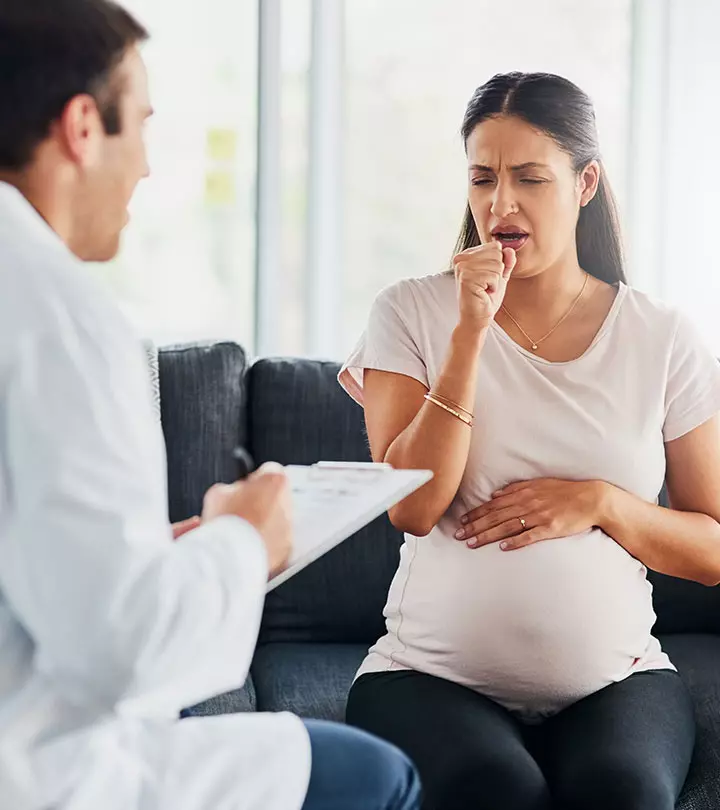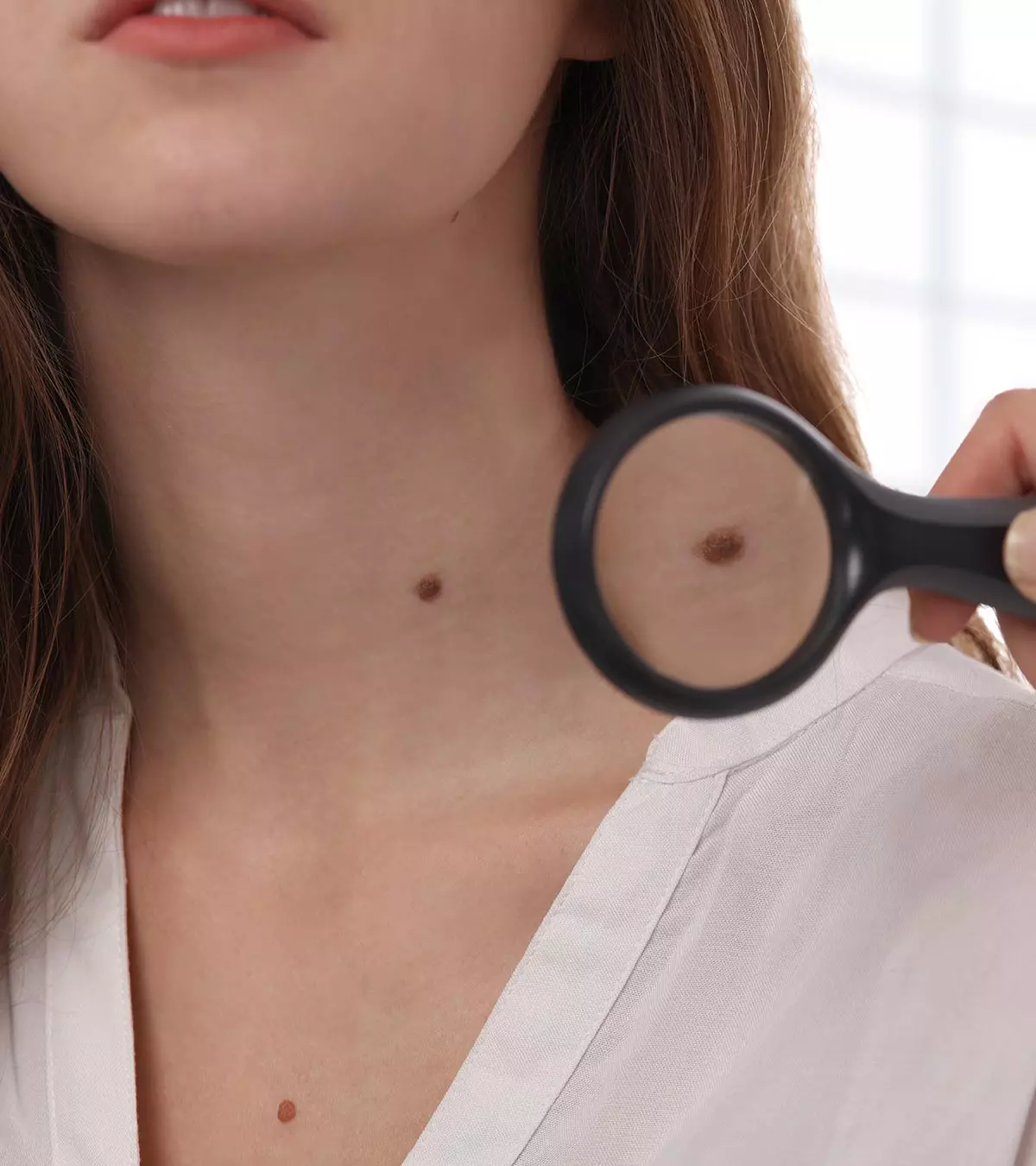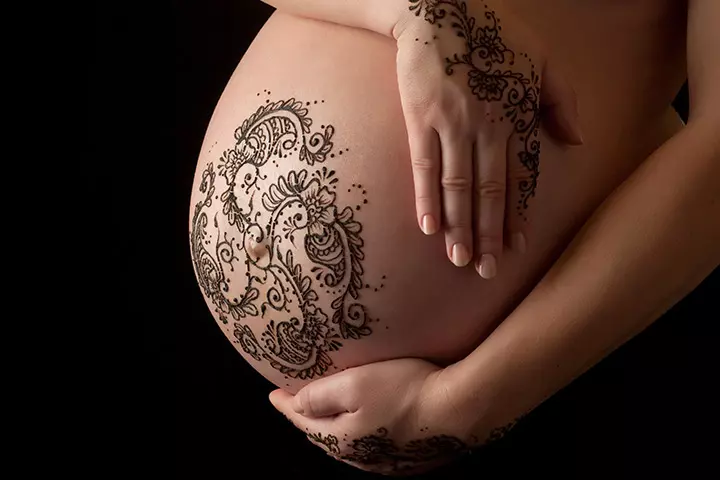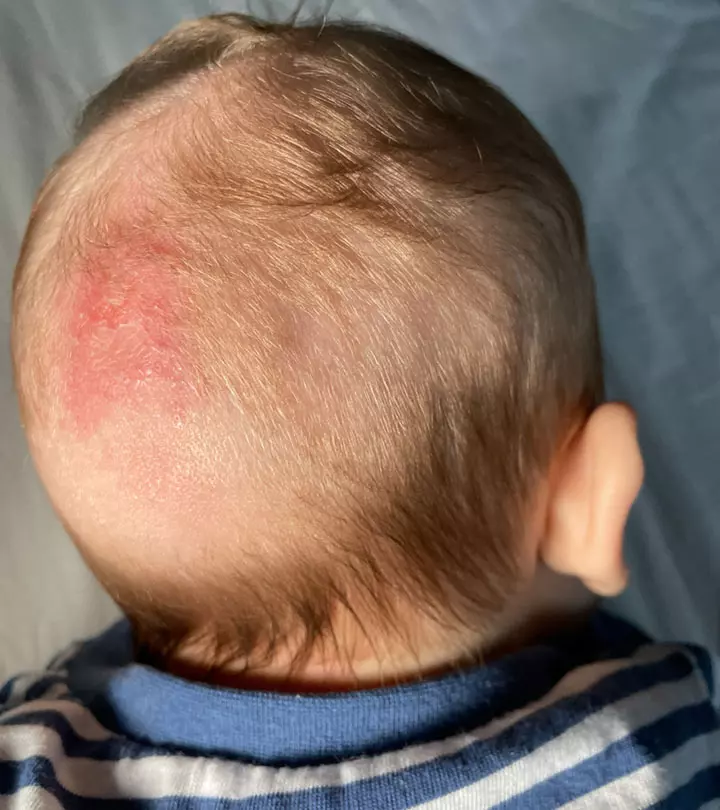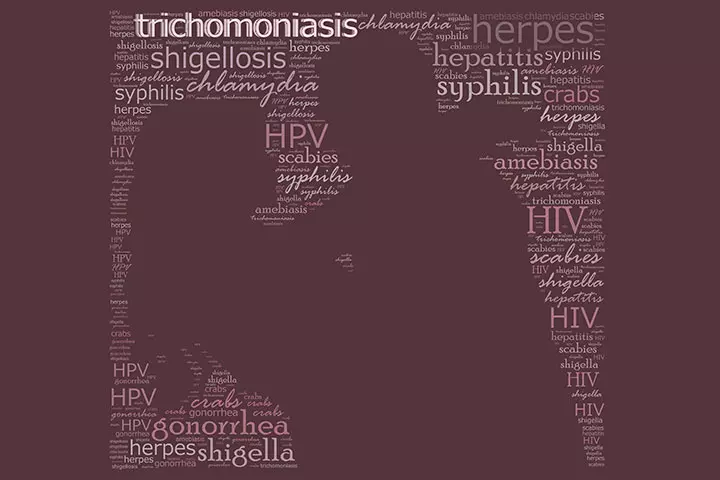
Image: ShutterStock
If you had regular cycles before pregnancy, you might get your first period after a miscarriage in around a month. However, if your menstrual cycle is erratic, predicting your next period may not be so easy. After you’ve had a miscarriage or an abortion, several factors, aside from hormones, come into play during your first period.
This post explains more about the first period after a miscarriage, including what it will feel like, when to expect it, indications of a serious problem, and how to handle emotional imbalances while waiting for your period. It also offers tips to help your body recover from the miscarriage and get pregnant again.
Key Pointers
- Depending on the typical length and cycle of pregnancy, it may take four to six weeks or longer for the first period to return after a miscarriage.
- Periods usually return once hormone levels in the body have normalized after a miscarriage. These periods may be heavier or lighter, longer or shorter than normal.
- A balanced diet, regular exercise, and a healthy lifestyle can aid in further recovery.
- If heavy bleeding occurs after recovery bleeding and HCG levels are still elevated, it is recommended to seek medical attention.
When Can You Expect Your First Period After Miscarriage?
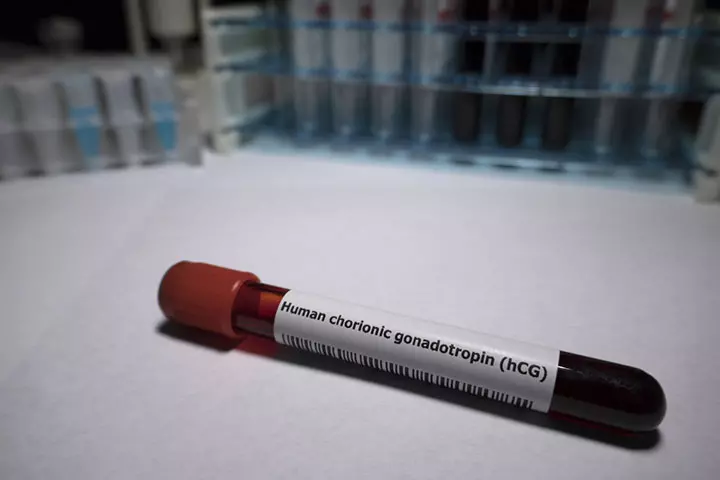
It usually takes around four to six weeks for your first period to return after miscarriage, and it may take longer to get into a regular cycle (1). The length depends on how consistent your periods were before the pregnancy.
The return of your period depends mainly on –
1. hCG Levels
The timing of the first period depends on when the hCG levels after miscarriage return to their pre-pregnancy state. Most test forms show the levels as ‘less than zero’ but do not specifically say if it is zero. Therefore, you may not know when it happens. hCG levels peak between eight and ten weeks of pregnancy. If an early pregnancy loss (EPL) occurs during this time, it may take longer for hCG levels to normalize and for fertility to be restored (2).
2. Length Of Your Pregnancy
Your period after a miscarriage also depends on the duration of your pregnancy (3). If you had a miscarriage in the initial pregnancy phase, the periods would return in around four weeks. But if you were into your second trimesteriWeeks 14 to 27 of pregnancy. , it could take two to three months for your period to return. The body takes time to recover from a miscarriage if it was farther along in the gestation period.
There should be 20 successive spotting-free days after bleeding during a miscarriage. Any bleeding that you experience after these 20 days will be the real period.
If you do not get your periods even after four to six weeks, and you had a regular cycle before pregnancy, it is time for you to see your gynecologist.
Amber, a mother of twins, shares her first period after miscarriage experience. She says, “I bled for a week. The baby was just six weeks old, but my body thought and registered that I was much further along than that. Surprise to me, but my period returned just a few short weeks after I stopped bleeding (i).”
What Will Your First Period After Miscarriage Be Like?

The first period after a miscarriage will be heavier than your regular periods, and is accompanied by severe cramps. However, not all women suffer from these cramps. You will also notice blood clots and the period lasts for four to seven days, but again it may not be the same for every woman (4).
A mother and vlogger known as Lil Modern Mama shares how her first period after a miscarriage was different, particularly with the bleeding. She says, “ For me, it was about 28 days later I started my period again, so it was cycle day one, and it lasted for about six days. Now the bleeding actually started very quickly. I usually spot for a couple of days, and then I’ll have some days of heavy bleeding, and then I’ll go back to spotting. And this was heavy bleeding and then some spotting and then more heavy bleeding and then some spotting. After it ended, though, I thought I was done at, you know, five, six days, and then all of a sudden at day ten of my cycle, I started spotting again, and I spotted for another 15 days. So you don’t know exactly when your body is ready to have everything cleansed out. It might take a little bit of extra time. Be patient—that’s not uncommon. You’re not weird. It’s just your body cleaning out. So I basically bled for an entire month for my first cycle (ii).”
There is also a difference between the first periods that occurs after a normal miscarriage and an abortion. This makes it hard to determine how the first period would be like and when it would occur. Comparing with other women might be futile and your gynecologist would be the best to consult with.
Recovery Before The Onset Of First Period
If it is a normal recovery, the hormones begin to work within three weeks, and you do not have vaginal bleeding or any other physical symptoms. You should check your symptoms to determine if your recovery is at a healthy and normal pace. There are some common scenarios and the symptoms that go with the hormone changes. However, many women face anxiety during this time about their menstrual cycles. Therefore, monitoring your mental health during this time is also essential.
Most Common Recovery
Bleeding from a miscarriage will slow down within a week, but random spotting might occur for almost a week after the bleeding ends.
The hCG levels will come to zero by the end of spotting or about ten days post miscarriage or dilation and curettage (D&C)iA surgical procedure to remove residual tissue from the uterus. . Research indicates that the rate at which hCG levels decline can vary depending on the method of pregnancy termination (5).
The fertility monitor says you are into ovulationiA process during which an egg is released into the uterus. , but you are not actually ovulating. You will notice a yellow or brown vaginal discharge which is natural cervical mucus, but not a fertility sign. In most cases, you will not enter ovulation in this cycle after a miscarriage.
Some women may experience mild pregnancy symptoms like abnormal body temperature or ovulation cramps. These symptoms will be due to the body’s effort to normalize the hormone levels. They will work right away, and you can get your first menses in four to five weeks, or sometimes later than seven weeks.
If you chart down the temperatures, you will notice that they are in place, and it is quite normal to have the fluctuations. Eventually, your period returns which can be heavy or light, and there will be ‘no normal’ for now.
Less Common And Still Normal Recovery
Bleeding and occasional spotting will slow down quickly. After one or two weeks, you will experience bleeding, which will be heavy and comes along with pains and strong cramps. This is not your period (You should not bleed for about 20 consecutive days to get a real period). Even when you check with your gynecologist, she may ask you to wait until the spotting stops completely.
Within a few days, it stops and it could spot again. This is because a small portion of placental tissue was missed during the natural miscarriage or D&C. This tissue, which is clung to the uterus, continues to draw some blood and produces pregnancy hormones. Eventually, your body perceives that there is no baby and tries to get rid of the tissue. Therefore, the miscarriage bleeding occurs again. Only then, the hCG levels come to zero so that a new cycle can begin (6).
You cannot expect your aunt flow before four weeks from this and up to seven weeks. The time from miscarriage to your first period, in this scenario, will be nine or ten weeks. However, it is still a normal condition.
 Quick fact
Quick factAbnormal Recovery That Should Be Monitored
Bleeding due to the miscarriage ends, and you will be spotting for almost three weeks, post which it stops but it may start again in a few days. Sometimes, it will be heavier and you may take it to be your period.
You should check your hCG levels. The levels should be zero by this time. But they may show 100 or even higher, and your doctor will ask you to wait and notice. If levels remain high and things go right, you will have another set of bleeding along with some tissue. If this pattern continues, you may require a D&C or your doctor may prescribe the drug, Cytotec, to induce cramps to push out the residual tissue (7).
Those who experience spotting even after many weeks, but have zero or low levels of hCG hormones, is because of hormonal imbalance. If this is the case, your doctor will give a dose of progesteroneiA female sex hormone that regulates various functions, including the menstrual cycle. (mostly a shot of Provera) which forces your body to act as if it has just completed its menstrual cycle. Once the drug leaves the body, the sudden drop in progesterone will trick your body that it is time for menses, and you will start bleeding (8). It can be light or heavy bleeding, but it is counted as a period.
You should wait for one more aunt flow before you try to get pregnant. If it does not work, your doctor may suggest birth control pills for a few months for regulating your menstrual cycle.
 Point to consider
Point to considerCycle That Indicates A Serious Problem
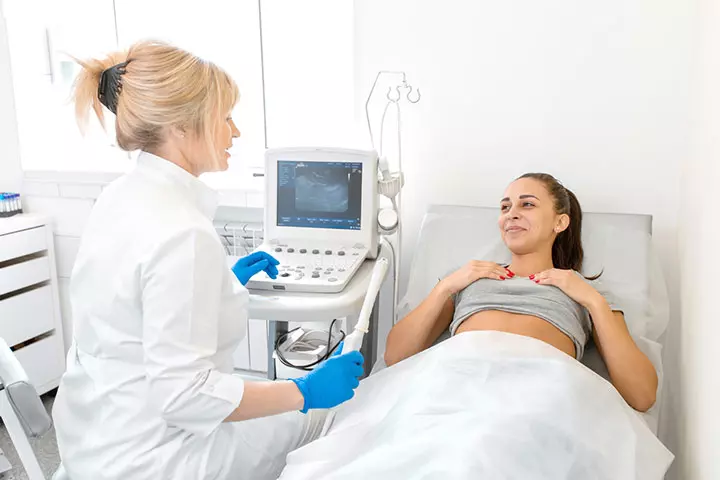
Bleeding will slowly taper off only to get heavy later. You may use several pads a day and would be exhausted and seriously ill from excessive bleeding and the painful situation that is never ending.
The hCG levels will be 500 or higher. Your doctor may ask you to wait and check or might schedule a test. The bleeding may be heavy, and you may notice black tissue portions. This could get you anxious every time you go to the loo.
Another hCG test may be performed, which may give higher or lower readings than before. Your doctor will ask you a few questions to eliminate a pregnancy or may go ahead with a sonogram.
These symptoms may develop because of any two conditions:
- You may have partial molar pregnancyiA pregnancy in which an embryo shows partial or no development. which triggers your body system to produce high hCG levels and heavy bleeding for several months (9). You cannot conceive until your body clears the hormones completely from your system.
- You may have a residual tissue in the reproductive system that may require dilation and curettage (D&C) or methotrexate treatments to destroy it (10). Your doctor can only suggest you the best treatment for the tissue removal. The earlier you get the treatment, the greater you can stay away from risks of hemorrhage, losing consciousness or iron-deficiency. The residual tissue may also get infected in some cases.
Is No Period After A Miscarriage Normal?
Many women experience concerns when they do not get their periods as expected, consequently having queries like, ‘No period after miscarriage, could I be pregnant?’ In most cases, there is no cause for alarm if it has been more than a couple of months since you got your period after miscarriage. However, you should check with your doctor since a few women can develop Asherman’s syndrome (scarring or adhesions in the uterus) followed by a miscarriage. The signs include no menses, cramps, light to no bleeding at the time of expected period (11). It is, therefore, one of the contributing factors of infertility and recurrent miscarriages.
In addition, there is also a possibility that you may become pregnant if you had no period. “No period after miscarriage. Could I be pregnant?” is a common question many women ask. This may happen if you had unprotected intercourse since your miscarriage. Some women will get back into regular menstrual cycles and ovulate as early as two weeks after the miscarriage (4). Therefore, there is a high possibility to have no period after miscarriage and get pregnant.
 Quick tip
Quick tipWhat If You Have Irregular Periods After Miscarriage?
Going through irregular or abnormal periods after dealing with the aftermath of the miscarriage is tough (12). You could feel the psychological stress of not being able to predict your cycle and resulting trouble in conceiving. The flow may be light, heavy, or undeterminable when you are bleeding.
The reasons behind your irregular periods after miscarriage could be:
1. Your body’s attempt at getting rid of the clot or tissue residue in the uterus.
If you have a miscarriage in the initial phase of pregnancy, you wouldn’t know if you were miscarrying, as it appears as a regular period. But, if you have a miscarriage in late pregnancy, you may have some clot of tissue or placenta left that may alter your menses.
2. You had irregular periods before pregnancy.
If you had irregular menstrual cycles before pregnancy, there is a high chance you will resume the same routine after miscarriage (4). But, if you had a regular menstrual cycle before and an irregular period after your miscarriage, you should immediately check with your doctor.
3. You are no longer ovulating.
Usually, you shed uterine lining while producing an egg. If you are not ovulating, i.e., not producing an egg, the uterine lining grows, becoming thicker and leads to bleeding. It will just be like a period, spotty or heavy.
4. You are either lean or obese.
The irregular period can also be due to your body weight. If women are underweight from dieting and exercising, they may get periods any longer (12).
5. You may get pregnant again.

If you do not get your periods after a couple of months, there is a chance that you might get pregnant again. You should see your doctor if this is the case.
Handling Emotional Imbalances While Waiting For Menstruation After Miscarriage
It is quite normal for you to undergo emotional upheaval after having a miscarriage. It could be very disturbing, but you should learn how to manage it with the following:
1. Accept PMS Symptoms
You will experience premenstrual syndrome (PMS) symptoms like moodiness and crankiness, which are very common during this time. You may notice yourself with intense mood swings, and you should consider that it may be time for your periods (13).
2. Embrace Your Body
While waiting for your period to come back, take time to care for your body. You can try massaging your abdomen with a gentle oil, like coconut oil, to relax and support your body. Show appreciation for your body and the healing it’s going through. By taking care of yourself and being patient, you can help your body feel more balanced as it prepares to return to its normal cycle.
Tips To Help Yourself After The Miscarriage
It does take time for your body to heal after your miscarriage. However, you can also help your body to accelerate the recovery process (14) (15).
1. Give some time to your body before you try to conceive again
You should give yourself some time, probably a few weeks, before you try to get pregnant again. It will help your body recover and will lower the chances of undergoing another miscarriage, which can happen if you try to conceive soon after a miscarriage.
2. Have a balanced diet and lots of rest
Providing your body with essential nutrients through a balanced diet helps your body heal faster. Choose nutrient-rich foods to eat after miscarriage and get plenty of rest to speed up the healing process. You can also continue to take prenatal vitamins with your doctor’s approval.
3. See a doctor after a miscarriage
Your doctor may perform a physical examination to determine the underlying causes of the miscarriage. Based on how far along you were or how frequently you have experienced miscarriages, the doctors may advise tests such as pelvic exams and hysteroscopy. It will help you greatly in beating the hurdles when you try to get pregnant again. You should first treat the underlying cause of the miscarriage, give it time to heal, and then try being a mom.
4. Resume your exercise regimen

You may restart your exercise schedule once you think your body is ready for it. Begin with slight exercises and gradually increase the difficulty level. However, you may begin exercising only after consulting your doctor.
5. Seek help
Surrounding yourself with your loved ones can also help in recovery and coping with a miscarriage. If required, you may also join support groups and therapy sessions to help process your feelings, as they provide a safe space to share your experience.
Getting Pregnant After Miscarriage
Most women can have a healthy pregnancy after miscarriage if there are no serious underlying causes. About 1% or 4% of women have two miscarriages in a row (16). For those who have more than two, doctors recommend special tests to determine whether you can still get pregnant.
Your body will quickly recover following the miscarriage. But when you are trying to get pregnant, your emotional state works more than your physical. You should give time for your emotions like sadness, guilt, and anger to settle down, seek emotional support when in need, and finally check with your doctor for the right time to get pregnant when you are ready.
If you had one miscarriage: The World Health Organization recommends that women should wait for six months before trying to get pregnant again (17). However, there is no proper evidence for this. A study looked into whether getting pregnant before having the first period after a first-trimester miscarriage affects the risk of having another miscarriage or experiencing complications with the pregnancy. The report states, “Conception shortly after a spontaneous miscarriage without waiting for the next menstrual period is not associated with adverse maternal or perinatal outcomes (18).” Other research findings say that women who conceive within six months of miscarriage have lower chances of miscarrying again or experiencing other pregnancy problems when compared to women who wait longer to conceive (19).
If you had two or multiple miscarriages: You should speak with your doctor to determine the causes of multiple miscarriages and the right time for you to get pregnant again. The doctor will perform certain tests such as genetic tests (of parents to check chromosomal abnormalities) and imaging tests (to check your uterus problems).
If you had a molar pregnancy: In molar pregnancy the uterus develops a benign tumor, and the placentaiAn organ responsible for transferring nutrients to the fetus through the umbilical cord. grows quickly with a group of cystsiA membranous tissue sac containing fluid, air, or other materials. (20). You should check with your doctor to know when you can try to conceive. Usually, you may have to wait for six months to one year after you lose a pregnancy this way.
Frequently Asked Questions
1. Can I get my first period and still be pregnant?
It is highly unlikely for you to get your period while you are pregnant. It is because the developing fetus requires blood and nutrients to grow. Only in case of ectopic pregnancyiA pregnancy in which the embryo gets implanted outside the ovary, usually in one of the fallopian tubes. , where the egg will not attach to the uterus lining, menses occur, as the embryo is not attached to the lining which makes the menstruation.
2. Am I fertile after a miscarriage?
Miscarriage does not have any severe effects on your reproductive health, experts believe the normal fertility levels return within four to six weeks post miscarriage where the ovulation begins and your period cycle starts functioning normally as before.
3. When will my period return after spontaneous miscarriage?
Spontaneous miscarriage is a condition when your body miscarries within 20 weeks of gestationiThe period between conception and delivery of a child. . Studies also state that spontaneous pregnancy loss occurs in about 25% to 50% pregnancies within 14 weeks of gestation (21). Your first period should usually occur four weeks after the hCG hormone levels come back to zero.
4. Can I get pregnant after miscarriage before the first period?
You can easily conceive soon after a miscarriage because the hormonal levels will be high and so would the fertility rate. But, to reduce the chances of miscarriage and other complications, you should wait for at least one regular cycle or up to six months to maintain a healthy pregnancy.
If you get pregnant quickly after a miscarriage before your first period, you will not know the reliable date for the last menstrual cycle. It makes it harder to establish your pregnancy that could cause confusion and worry you about your baby’s development.
5. Can I use tampons for the first period after miscarriage?
You can use the tampons for your first period. But, for post miscarriage bleeding, do not use them since you are more susceptible to vaginal infections.
6. How long does the first period after miscarriage last?
The first period after miscarriage will not be normal and will be quite heavy and long. It usually takes several months to get back to a normal rhythm. If you feel the cycle is not settling down, you should check with your doctor.
7. How do I calculate my next period after a miscarriage?
After a miscarriage, the constant spotting can make it difficult for women to calculate the next period. Researchers indicate that four to six weeks is the usual time your body should take to adjust to previous conditions before the miscarriage and pregnancy (22). However, this timeline could vary from one woman to another and depends on several factors, including the typical length of the cycle and the specific cause of the miscarriage (22).
8. Does my cycle change after miscarriage?
Miscarriage may affect your menstrual cycle, and these changes depend on several factors, such as circumstances of pregnancy loss and your overall health. Generally, the individuals who had irregular periods before pregnancy and subsequent miscarriage would have irregular periods, and their cycles will be more likely mismatched than usual (22).
9. How long does it take for hormones to balance after miscarriage?
Research suggests that hormones may require at least six weeks or more to return to normal levels (22). However, the duration may vary from one woman to another and would depend on the recovery after miscarriage, the cause of pregnancy loss, and the woman’s overall health.
10. What does period blood look like after miscarriage?
Obstetrician and gynecologist Dr. Himali Maniar Patel explains, “Menstrual blood following a miscarriage might appear different in color, ranging from bright red to dark brown. The consistency may also change, potentially including larger blood clots than what was typical before the miscarriage. These characteristics are influenced by the body’s process of expelling tissue and restoring the uterine lining to its normal condition.”
The constant spotting after the miscarriage may make it difficult for you to note the beginning of your period and calculate your menstrual charts. However, understanding the process of menstrual health after a miscarriage is important to help you differentiate between normal and abnormal bleeding. Note that each woman experiences periods after miscarriage differently. This period may differ from your regular cycles in hCG levels and cycle length. So, be vigilant about your bleeding consistency, and report your concerns to your gynecologist.
Infographic: What If You Have Irregular Periods After Miscarriage?
Irregular periods after a miscarriage can be a common occurrence for many women. It is essential to understand that the body goes through physical and hormonal changes after a miscarriage, which can affect the regularity of menstrual cycles. This infographic will help you understand the science behind it. Illustration: Momjunction Design Team
Illustration: First Period After Miscarriage: Timeframe And Tips To Follow

Image: Stable Diffusion/MomJunction Design Team
After a miscarriage, it’s important to understand what happens next. This video will cover ovulation, fertility, and periods to help you understand the journey ahead and help you recover from the grief.
Personal Experience: Source
MomJunction articles include first-hand experiences to provide you with better insights through real-life narratives. Here are the sources of personal accounts referenced in this article.
i. Our (fertility) story | round two.https://themasseyspot.blogspot.com/2014/12/our-fertility-story-round-two.html
ii. First Period after a Miscarriage: what to expect.
https://www.youtube.com/watch?feature=shared&v=SDpVt0QdegM
References
- Getting pregnant after miscarriage ectopic or molar pregnancy.
https://www.tommys.org/baby-loss-support/miscarriage-information-and-support/pregnancy-after-miscarriage/getting-pregnant-after-miscarriage - Use of Fertility Awareness (NFP) After Early Pregnancy Loss.
https://www.factsaboutfertility.org/use-of-fertility-awareness-nfp-after-early-pregnancy-loss/ - Miscarriage.
https://www.marchofdimes.org/find-support/topics/miscarriage-loss-grief/miscarriage - Periods after pregnancy loss – what to expect.
https://www.miscarriageassociation.org.uk/blog/periods-after-pregnancy-loss/#:~:text=As%20a%20guide%20it%20canyour%20GP%20or%20hospital%20doctor. - R P Marrs et.al; (1979); Disappearance of human chorionic gonadotropin and resumption of ovulation following abortion.
https://pubmed.ncbi.nlm.nih.gov/495673/ - Retained Products of Conception.
https://my.clevelandclinic.org/health/diseases/21512-retained-products-of-conception - MISOPROSTOL TREATMENT FOR MISCARRIAGE.
https://anmc.org/wp-content/uploads/guidelines04182018/CG_MisMisopPtEd.pdf - Medroxyprogesterone.
https://medlineplus.gov/druginfo/meds/a682470.html - Hydatidiform Mole.
https://www.ncbi.nlm.nih.gov/books/NBK459155/ - Sushil Chawla and Rajesh Sharma; (2023); Retained Products of Conception (RPOC): Diagnosis Complication & Management.
https://www.jogi.co.in/public/storage/files/13224_2023_1873_OnlinePDF.pdf - Ashley R. Gilman Barber et.al; (2014); Curettage and Asherman’s Syndrome—Lessons to (Re-) Learn?.
https://www.jogc.com/article/S1701-2163(15)30413-8/fulltext - Irregular Periods.
https://my.clevelandclinic.org/health/diseases/14633-abnormal-menstruation-periods - What happens to my body during and after a miscarriage?
https://www.tommys.org/baby-loss-support/miscarriage-information-and-support/your-options-and-decisions/what-happens-my-body-during-miscarriage - Coping with Miscarriage.
https://www.stanfordchildrens.org/en/topic/default?id=coping-with-miscarriage-1-4036 - Miscarriage Care Instructions–Expectant Management.
https://uihc.org/educational-resources/miscarriage-care-instructions-expectant-management - What are the signs of early miscarriage?
https://health.ucdavis.edu/obgyn/specialties/family-planning/early-pregnancy-miscarriage/signs-early-miscarriage - Trying to conceive soon after a pregnancy loss may increase chances of live birth
https://www.nih.gov/news-events/news-releases/trying-conceive-soon-after-pregnancy-loss-may-increase-chances-live-birth#:~:text=The%20World%20Health%20Organization%2C%20for - Lee Reicher et.al; (2020); Should Women wait for the first menstrual period following spontaneous miscarriage before becoming pregnant again?
https://www.ajog.org/article/S0002-9378(19)32114-3/fulltext - Eleanor R Love et.al; (2010); Effect of interpregnancy interval on outcomes of pregnancy after miscarriage: retrospective analysis of hospital episode statistics in Scotland
https://pubmed.ncbi.nlm.nih.gov/20688842/ - Molar Pregnancy.
https://www.marchofdimes.org/find-support/topics/miscarriage-loss-grief/molar-pregnancy#:~:text=A%20molar%20pregnancy%20(also%20calledto%20a%20bunch%20of%20grapes. - Jana L Allison et.al; (2011); Management of First Trimester Pregnancy Loss Can Be Safely Moved Into the Office.
https://pmc.ncbi.nlm.nih.gov/articles/PMC3100102/ - Z. Jukic A. M. et.al; (2010); Effects of early pregnancy loss on hormone levels in the subsequent menstrual cycle.
https://www.ncbi.nlm.nih.gov/pmc/articles/PMC3057575/ - Treating miscarriage.
https://www.thewomens.org.au/health-information/pregnancy-and-birth/pregnancy-problems/early-pregnancy-problems/treating-miscarriage - Recovering from surgical management of a miscarriage.
https://www.rcog.org.uk/for-the-public/browse-our-patient-information/recovering-from-surgical-management-of-a-miscarriage/ - What happens after miscarriage.
https://www.pregnancybirthbaby.org.au/what-happens-after-miscarriage
Community Experiences
Join the conversation and become a part of our nurturing community! Share your stories, experiences, and insights to connect with fellow parents.
Read full bio of Dr. Monica Agarwal
- Dr. Himali M Patel is an Ahmedabad, India based gynecologist with 13 years of experience. She currently practices at Nisha Women's Hospital and IVF Centre. Dr. Patel did her graduation in Medicine at Bharati Vidyapeeth University, Pune and holds a diploma in Obstetrics and Gynecology.
 Dr. Himali M Patel is an Ahmedabad, India based gynecologist with 13 years of experience. She currently practices at Nisha Women's Hospital and IVF Centre. Dr. Patel did her graduation in Medicine at Bharati Vidyapeeth University, Pune and holds a diploma in Obstetrics and Gynecology.
Dr. Himali M Patel is an Ahmedabad, India based gynecologist with 13 years of experience. She currently practices at Nisha Women's Hospital and IVF Centre. Dr. Patel did her graduation in Medicine at Bharati Vidyapeeth University, Pune and holds a diploma in Obstetrics and Gynecology.
Read full bio of Rebecca Malachi
Read full bio of Swati Patwal
Read full bio of Aneesha Amonz






